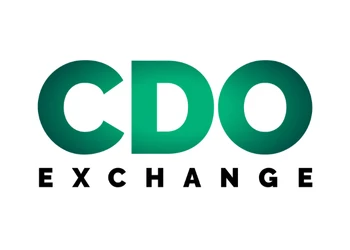5 Ways to Set Your New Chief Data Officer (CDO) Up For Success
Add bookmark
From managing GDPR compliance to spearheading new data science projects to promoting enterprise data literacy, the work of the modern chief data officer (CDO) is never done. As data regulations and business priorities constantly shift, so does the role of the CDO. All too often CDOs are tasked with the impossible: building a world class data strategy from scratch. Eventually they find themselves trapped between two worlds, IT and the business, with neither one completely on their side.
This may be why CDO roles tend to have higher than average turnover rates. In fact, Gartner has found that only half of CDO hires will be deemed successful and average tenure in the role is just 2.4 years.
However, having a CDO in place has never been more important. With this in mind, we’ve compiled 5 key considerations for ensuring CDO success.
Define the role
It sounds obvious, but according to the research, this is the #1 reason CDOs leave: their role is not clearly defined.
Compared to the CFO and CIO, the CDO is a rather new role so it makes sense that there would be some confusion. In addition, when the CDO role was first envisioned, it was primarily a technical role and, at some companies, maybe should still be so.
However, for most organizations, the CDO should be in charge of its offensive data strategy. Instead of spending time protecting, cleansing or managing data, their sole focus should be on how data can be used to drive revenue growth and innovation. In other words, the role of the CDO should revolve around how to best use data, not manage data risk.
READ NEXT: A Quick Guide to Data Governance
How mature are you? Don’t hire a CDO until you’re ready
CDOs are not miracle workers. If your culture and IT infrastructure are not at the level they need to be, even the most promising CDO will fail.
When it comes to ensuring that the CDO achieves long term success, it’s best to adopt an “if you build it they will come” mentality. Get your house in order by building the right data architecture and getting the business excited about the potential of data-driven innovation by promoting data literacy. Make everyone excited about the prospect of the CDO before they arrive so that everyone, including stakeholders, are well positioned to deliver quick wins earlier in their tenure.
Who should the CDO report to? The CEO
Almost more than any other function, the CDO needs top-down-support from the very highest level, even the board-level.Given the importance of data to the business and the challenges associated with using data effectively, ideally the CDO should report directly to the CEO. If not them, the CFO or COO.
While traditionally, the CDO has reported to the CIO or CTO, many (though not all) organizations have ultimately found this reporting structure problematic. When it comes to data, the CIO/CTO has a number of competing priorities that may conflict with those of the CDO. Furthermore, CDOs who report into IT risk getting siloed into that vertical and struggle to gain credibility or engagement from the business or get lost in defensive data strategy. Instead the CDO and CIO should work in conjunction as peers.
Hire a chief information security officer (CISO)
Simply put, data security and protection deserves its own c-level executive. It’s simply too important and too difficult.
While it is vital that the CDO develop data strategies that are both safe and ethical, the full breadth of data security should not fall on their shoulders. Companies that task the CDO both with forward-looking data strategy development and defensive data management risk much more than losing their CDO.
Embrace Data Democratization
The most successful CDOs are more than just technologists or astute business people, they’re visionaries and storytellers. They’re adept at identifying new, promising ways of using data and getting the right people on board to turn vision into action.
Of course, finding much less engaging such people can be incredibly difficult. In all likelihood, most companies will have to build their own chief data officers (if not now than in years to come) and this starts with data democratization. By making everyone part of the data analytics process, you not only get them engaged with the data analytics process in the near-term, but could very likely inspire future CDOs.
























